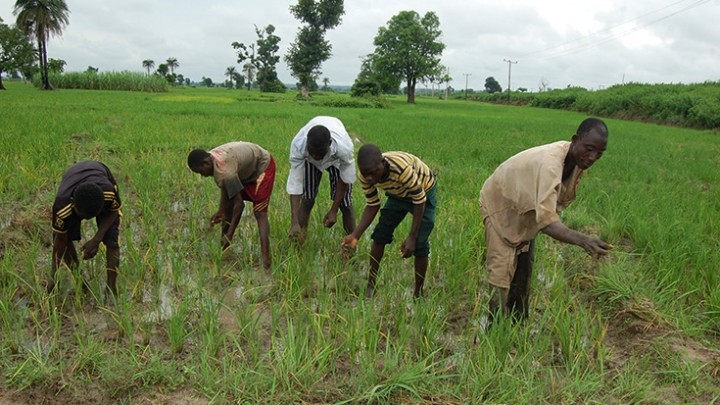As part of efforts to ensure that climate change does not affect farming and for the protection of the environment, the Climate Sustainable Development Network (CSDevNet) has sensitised farmers and stakeholders on climate change adaptation and global best practices in protecting the environment while doing farming activities.

The sensitisation workshop was organised to empower relevant stakeholders on carbon credit activities and to strengthen stakeholders’ capacity to translate Climate Change Adaptation (CCA) and Smart Agriculture to farmers in the state.
In his remarks, the Commissioner for Agriculture and Forestry, Mr Olayato Aribo, said that the workshop was to help the participants to get strategies and measures on what to do so that climate change would not affect farming activities, as well to cultivate the habit of protecting the forests, by not engaging in degradation and deforestation.
The Commissioner, who spoke through the Administrative Secretary of Forestry, Mr David Adesina, said that the state government has put measures in place to tackle climate change by planting of trees, removal of plastic waste from the environment and opening up blocked drainage channels for free flow of water among others.
Also speaking, the state Coordinator of REDD+ Project, Mr Andy Adejube, said the essence of the training is to ameliorate the effects of climate change in the state in relation to forest-dependent communities.
Adejube said that there must be drastic reduction of deforestation so that human activities will not destroy forests.
He added that participants were drawn from communities in the three pilot sites in the state, mainly Kolawole, Obada, Sopoto Sopete in Ondo East Local Government and located in the Queen’s plot forest reserve axis, where there is total ban on felling of wood and Owani in Ose Local Government area of the state.
He explained further that the participants included Community Based Women Organisations and Civil Society Organisations so that they could go back and train others with the knowledge they will acquire from this workshop.
In his lecture, Mr. Steve Abu, the Programme Manager at CSDevNet called for collective effort of relevant stakeholders and agencies to combat menace of climate change in Nigeria.
Abu stated that the aim of the workshop seeks to build and strengthen the capacity of participants on climate change adaptation and climate-resilient agriculture.
His words: “We want to ensure that they are strengthened on adaptation to climate change and on climate-smart agriculture so that they can replicate the knowledge in their rural communities to farmers and women on how to build resilience to climate change impacts, especially those that are from forest-dependent communities, to train them on alternative sources of livelihood, that can help them to withstand negative impacts of climate change.”
The programme manager said that the CSDevNet Network is in collaboration with the Ondo State Government to achieve its objective of facilitating a climate-resilient and sustainable Nigeria.
“We believe there is need to partner with the state government and other relevant stakeholders because to mitigate against climate change innovative and win-win partnerships are key.
“We have state actors, those that have the responsibility of addressing this issue on their shoulder, that is government at various levels while non-state actors like the private sector, civil society organisations and community-based organisations are equally important in the fight against climate change,” he said.
He asked participants to move to communities and see how to replicate their knowledge and ensure that the knowledge became a practice.
The participants were lectured on Forest Carbon Inventory, Forest Carbon Pool, global climate change impacts, adaptation, and sustainable mitigation measures and Climate-smart Agriculture as Climate Change Adaptation.
Speaking on behalf of the participants, Mrs Clara Abidoye and Mr Aderemi Olaniyan, thanked CSDevNet and the state government for exposing them to best global practices on climate change while carrying out their activities without destroying the forests and the environment. They also appreciated the kind gesture they received in the area of garri processing machines donated to them
